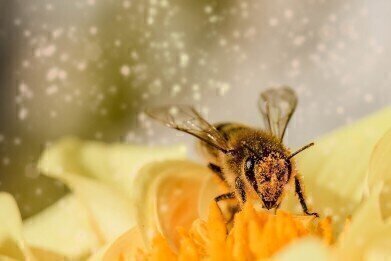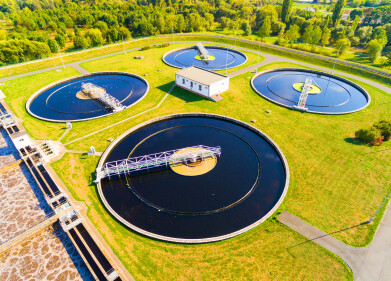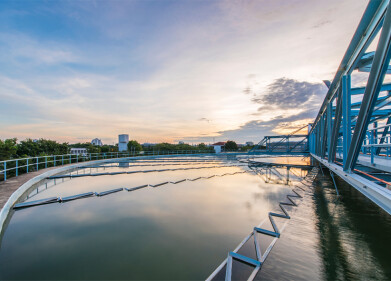Water/Wastewater
How Could Pollen Clean Water?
Sep 28 2019
When we hear the word pollen, we most commonly think of hay fever, sneezing and allergic reactions. However, pollen is a largely beneficial component of our environment, aiding in the natural cycles of plant fertilisation and reproduction. But besides these altruistic acts, it has another hidden talent: cleansing water of its micropollutants and contaminants of emerging concern.
These secret properties were discovered during a recent research paper conducted by scientists at the University of Hull. By treating pollen grains with a simple and inexpensive process, the authors of the study were able to turn them into microscopic sponge-like particles capable of attaching themselves to pollutants and extracting them from the water. Best of all, after their treatment, the pollen no longer contains hypoallergic properties, meaning it won’t trigger any hay fever attacks.
Slipping through the net
Despite the fact that the government has imposed strict water safety standards all across the UK, some contaminants are evasive enough that they slip past wastewater filtration systems. This means that without high-resolution monitoring, river conservation is blind. Fortunately, remote water quality measuring systems are improving in ability and ubiquity, but they have only served to reveal the extent of the problem facing the bodies charged with keeping our waterways clean.
“Even very low levels of certain compounds, such as hormones, pharmaceuticals or those in household and personal care products, can cause toxic effects. However, they often can escape normal clean-up processes at wastewater treatment plants,” explains Andrea Boa PhD, lead author on the research. “We're trying to find alternative ways to remove these chemicals from water so we can reduce the amount going into the environment.”
Boa’s work is part of a larger programme named “Sullied Sediments”, which is examining the concentration of pollutants in river sediments all across Europe. Some of the most commonly occurring contaminants are chemicals like triclosan, a chemical used in many cosmetics such as toothpaste and soap, as well as pharmaceuticals like diclofenac, an anti-inflammatory pain-reliever. The research aims to eventually reduce future pollution of substances like these.
An attractive solution
The pollen spores studied in Boa’s work occur naturally in common moss. Before treatment, each grain has a hard outer shell coated with proteins and wax, inside of which lie genetic materials. The shells are already used commercially to house active ingredients that can be released into the human body via cosmetic, food, medicinal and pharmaceutical products.
However, Boa has sought to utilise the spores in a different manner. After noticing that the shells were adept to attracting certain kinds of compounds, he became convinced that they could be used to trap and extract pollutants from drinking water supplies. After ridding the shells of their waxy surface and the genetic material inside (both of which contribute to their allergic state) via hydrolysis, Boa and his team can modify the grains’ composition to attract different types of pollutant.
For example, the addition of iron oxide to the shells is capable of removing almost all traces of phosphate in water, as well as up to 80% of other contaminants as well. While the process will require tweaking to ensure it is optimally attuned to extract the desired pollutants, it is already cost-effective and eminently actionable, making it an attractive solution to this widespread problem.
Digital Edition
IET 34.2 March 2024
April 2024
Gas Detection - Biogas batch fermentation system for laboratory use with automatic gas analysis in real time Water/Wastewater - Upcycling sensors for sustainable nature management - Prist...
View all digital editions
Events
Apr 30 2024 Melbourne, Australia
Apr 30 2024 Birmingham, UK
May 03 2024 Seoul, South Korea
May 05 2024 Seville, Spain
May 06 2024 Minneapolis, MN, USA


















